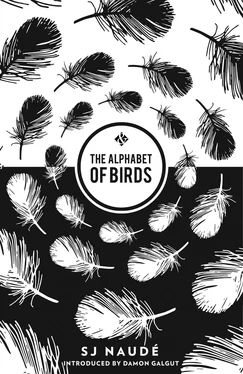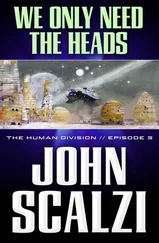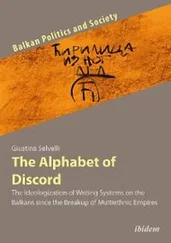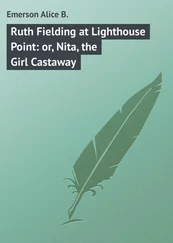Everywhere there are people; all of them know Joschka. They remember him or know of him, have something to say about him (‘ ein wilder Junge , this guy of yours,’ or someone nodding in Joschka’s direction, a kind of hero worship in his eyes: ‘ Der dunkle Prinz des Nachtlebens dieser Stadt, dein Freund ’) . Joschka as the dark prince of Berlin nightlife: he is not all that surprised. He meets all of those milling around Joschka, immediately forgets their names again. In one place there are Ulrich, Aloysius, Ebermud, Detlef, Ida and Petra. Elsewhere there are Arno, Theodulf, Finn, Christian, Ava, Till, Lauri, Eriulf, Hilderic, Reiner and Ervig. In diverse places they encounter Sven, Nardo, Hugo and Wolfgang. And then there are also Ladewig, Kai, Adelfriede, Leander, Monika, Arno, Irnfried … Or similar names. There is no end to the list.
Later he will be unable to recall large parts of that night. In reality it was probably two or three nights, people and events having since merged. Like shadows observed through a smoke-blackened pane.
There are nevertheless chunks of time he remembers clearly, jutting out like shards of glass.
At some point in the early evening they are at a bar in Kreuzberg. They park on a bridge, descend the stairs and walk along the canal. Ahead of them, lanterns are hanging over the water. Wooden floats are anchored to the banks. On these, people are lying and sitting on cushions under sweet marijuana clouds. Next to the open-air bar counter, someone is spinning über-cool Berlin lounge music. The floats wobble as they walk across them. He gets the feeling, and not for the first time, that Joschka is leaving him behind, that he cannot catch up with him. He can only follow. He looks at Joschka’s proud shoulders from behind. It belongs to him, this city, to Joschka. He takes a puff on a stranger’s joint, thinking it might help.
‘Peace,’ the young man says from beneath his fringe when he takes his joint back, as if it were California, circa 1964. The marijuana paralyses his limbs.
Joschka is like a charged wire. The cocaine makes him quick and hard; he walks with heavy feet across the wobbling floats. It is as if he has somewhere to go, something to do. A monumental destination and a heroic act, something requiring superhuman effort. Far ahead of him there appears to be a vision — radiating, blinding — of another city. That which is here, right in front of him, is not enough, just an obstruction in the wide, straight road he is on.
He tries to ignore Joschka for a moment, focusing his attention on the blonde girl next to him (one of many that night), sunk into a pyramid of cushions. A perfect young Aryan specimen. They smile at each other, at first without saying anything. The air is like honey between them. He mentions it. There are fireflies around his feet, and around hers.
‘Shhh,’ she says, and giggles a little.
With a finger on her lips, she points at the fireflies and whispers: ‘ Sie möchten Honig trinken .’ They want to drink honey.
She takes him by the hand, pulls him down onto the cushions. He stretches out and starts relaxing, his head against hers, the tips of her hair against his cheek.
‘ Wie heisst du? ’ she enquires about his name, her sweet breath in his ear.
His tongue is sluggish. ‘ Was bedeutet schon ein Name? ’ What’s in a name?
She shudders, folds her arms against the cool air.
‘The dew,’ she says, ‘is falling asleep in the folds of my clothes.’
They both look languidly towards her friend, who is blowing soap bubbles through a plastic ring. The three of them stare with exaggerated astonishment at the shiny little rainbows on each bubble. The blower extends her hand, attempting to catch the bubbles. She fails, then bends forward, slowly, as if burrowing through molasses, and drags her fingers through the reflections of buildings on the water. Underneath him, the float is rocking. He is floating on the shimmering city.
Bubbles keep gliding and bursting. Just the slightest soapy spray remains of each bubble when it disappears. Joschka is behind him unexpectedly, his fingertips resting lightly on his head. It is when he draws back, he knows, or now recalls, when he stops following, that Joschka comes and finds him. He keeps forgetting. His skin erupts in goose pimples. He looks intently at his own sleeve. While he is staring, a drop condenses there, on the black leather. Out of the honey-like air.
With a thick tongue, without looking up, he says, ‘How slowly the dew is forming, Joschka: like lava hardening into a landscape, a continent breaking apart …’
His eyes close while he is speaking, then open slowly when he forgets his words. Fog is approaching across the water, from below the bridge. It changes the air around the floats, brings a certain restlessness. He tries to look through it, at what is drifting behind it. Joschka’s fingers, he realises, are no longer on his head.
‘ … like a pearl growing in an oyster.’
Joschka is not within hearing distance any more.
Other clear fragments: A small restaurant on a busy street in Mitte. Spanish hams hanging above the counter, swaying in the air-conditioning. Joschka is smoking with someone outside — an Ebermud or Wolfgang or Camilla — and crowing with laughter. He is alone in here. The lights are too bright and he is hungry. He keeps looking at the hams. They leave without eating.
A brief interlude at a party in a Jugendstil apartment in Charlottenburg. The ceilings are four metres high and there are wide sash windows on each side. He stares at the graffiti on the ornate ceilings, at the crystal chandeliers, dim with dust. Joschka is standing on his own in the double doorway between the connecting rooms; he has stopped speaking. But his dark beauty is enough, his mere presence. The crowd is still swirling around him, now more than ever. Around his long, thin legs, small buttocks, high, broad shoulders, around his cheekbones, almost Asiatic, sharply chiselled below his black eyes.
An underground party in Kreuzberg. They struggle to find it. The man with them in the taxi will get them in, even though they are not on the guest list. These things are secret, such squatter parties in empty public buildings. At the first whiff, the Polizei will come and break it all up. The man is on his cellphone, engaged in endless conversations, trying to establish the exact location. In between the man is giving directions to the frustrated driver. He is talking at breakneck speed. (Is he on amphetamines?) A few harsh words are exchanged. They arrive at what must be an old school or government building. The man on the phone is still getting instructions as they walk. He has a torch; they slip in through a side entrance. They get lost, walk back and forth through corridors and a courtyard; over and over again they turn back and into other corridors. It must be the wrong place — there is no sign of life, just more corridors and windows nailed shut with chipboard. Then they feel the heavy bass of the music in their bones before they can hear it.
Later, in the early-morning hours: Berghain nightclub in an old power station. The music is hardcore Berlin industrial; it has a sharp silvery velocity, a frequency just short of frenzy. Narrow stairways cut upwards through the colossal central space, in different directions, to different floors. High against the walls are windows, old pulley systems and transformers. Behind the bar: counters, chunks of greasy machinery. On one level, just next to the dance floor, there is a long row of elevated cells. What the original use of these might have been, he could not say. Now couples are standing in these little cages, kissing, visible from two sides. Like something from a science-fiction film: robots learning human emotions, or a laboratory in which the state monitors and controls reproduction. A man climbs out of a cell right next to him. The girl gets out on the other side. The man turns towards him, addresses him:
Читать дальше












